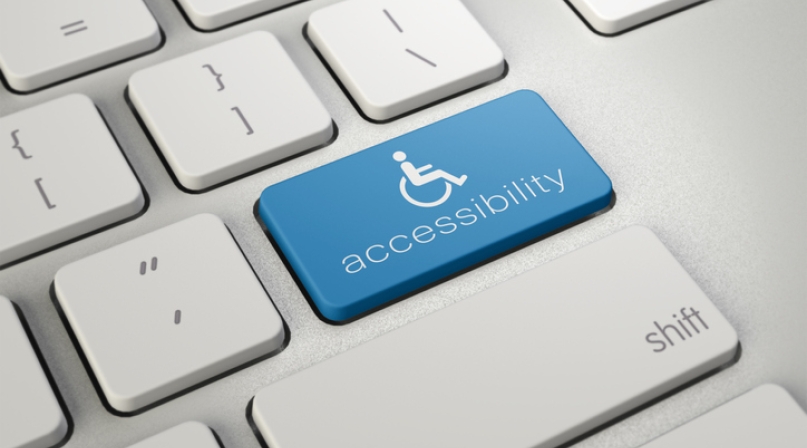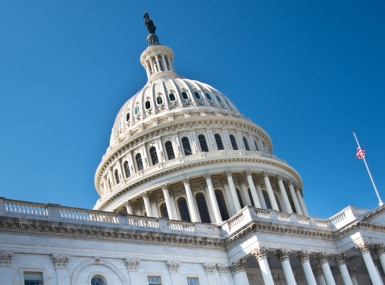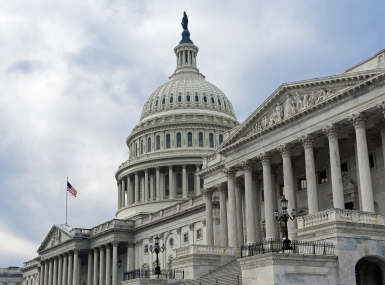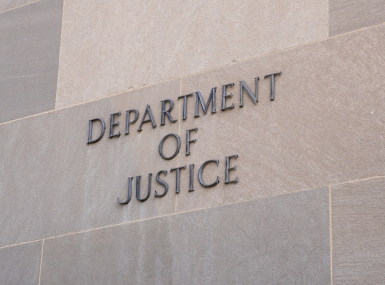DOJ proposes new rule for nondiscrimination on the basis of disability for state and local web-based services
Author

Seamus Dowdall
Upcoming Events
Related News

Key Takeaways
On August 4, the Department of Justice (DOJ) published a proposed rule to create technical requirements for state and local web-based services to conform to regulations pertaining to Title II of the Americans with Disabilities Act (“ADA”), contained in 28 CFR Part 35. The proposed rule would establish technical requirements to ensure that web content made available by state and local government entities to the public or used for offering services, programs and activities is accessible to individuals with disabilities. This includes text, images, sounds, videos, animations and more. Additionally, the proposal covers accessibility requirements for mobile apps offered by public entities. Public comments to the rule are due by October 3.
To achieve web accessibility, the DOJ plans to adopt an internationally recognized standard, the Web Content Accessibility Guidelines (WCAG) 2.1 Level AA. Counties with a total population of 50,000 or more would need to comply within two years of the final rule's publication, and counties with a population of less than 50,000 would have three years to comply.
The proposal includes exceptions for certain categories of web content, including:
- Archived web content
- Preexisting conventional electronic documents
- Web content posted by third parties on a county's website
- Third-party web content linked from a county's website
- Course content for specific students in public postsecondary institutions
- Class or course content for specific students in public elementary or secondary schools
- Conventional electronic documents related to specific individuals, their property, or their accounts, and are password-protected or secured.
If a county's web content falls under these exceptions without limitations, they do not need to conform to the WCAG 2.1 Level AA standard. However, if a limitation applies, compliance with the proposed rule's accessibility requirements becomes necessary.
The proposed rule also addresses the use of "conforming alternate versions" of web pages to achieve accessibility and allows flexibility in demonstrating substantial equivalent or greater accessibility and usability through other design methods or techniques.
The rules create a provision which states that compliance with WCAG 2.1 Level AA is not mandated if it results in undue financial and administrative burdens or fundamentally alters the services, programs, or activities of the county.
NACo supports the ADA and nondiscrimination on the basis of disability initiatives, and NACo will continue to monitor this issue for updates.
Related News

U.S. Senate eyes funding the Affordable Connectivity Program through broader telecommunications package
The ACP is under a short timeline to receive additional funding. After May 31, all 23 million enrolled households will cease to receive any benefit from the program. Several Senate proposals could lead to expedited passage of funding to save the program.

Congressional leaders introduce new legislation for a national data privacy framework
On April 7, U.S. House Energy and Commerce Committee Chair Cathy McMorris Rodgers (R-Wash.) and U.S. Senate Commerce, Science and Transportation Committee Chair Maria Cantwell (D-Wash.) introduced the American Privacy Rights Act.

DOJ issues final rule for state and local governments to implement web-based accessibility standards
On April 8, the U.S. Department of Justice (DOJ) announced the release of a web accessibility final rule for state and local governments.